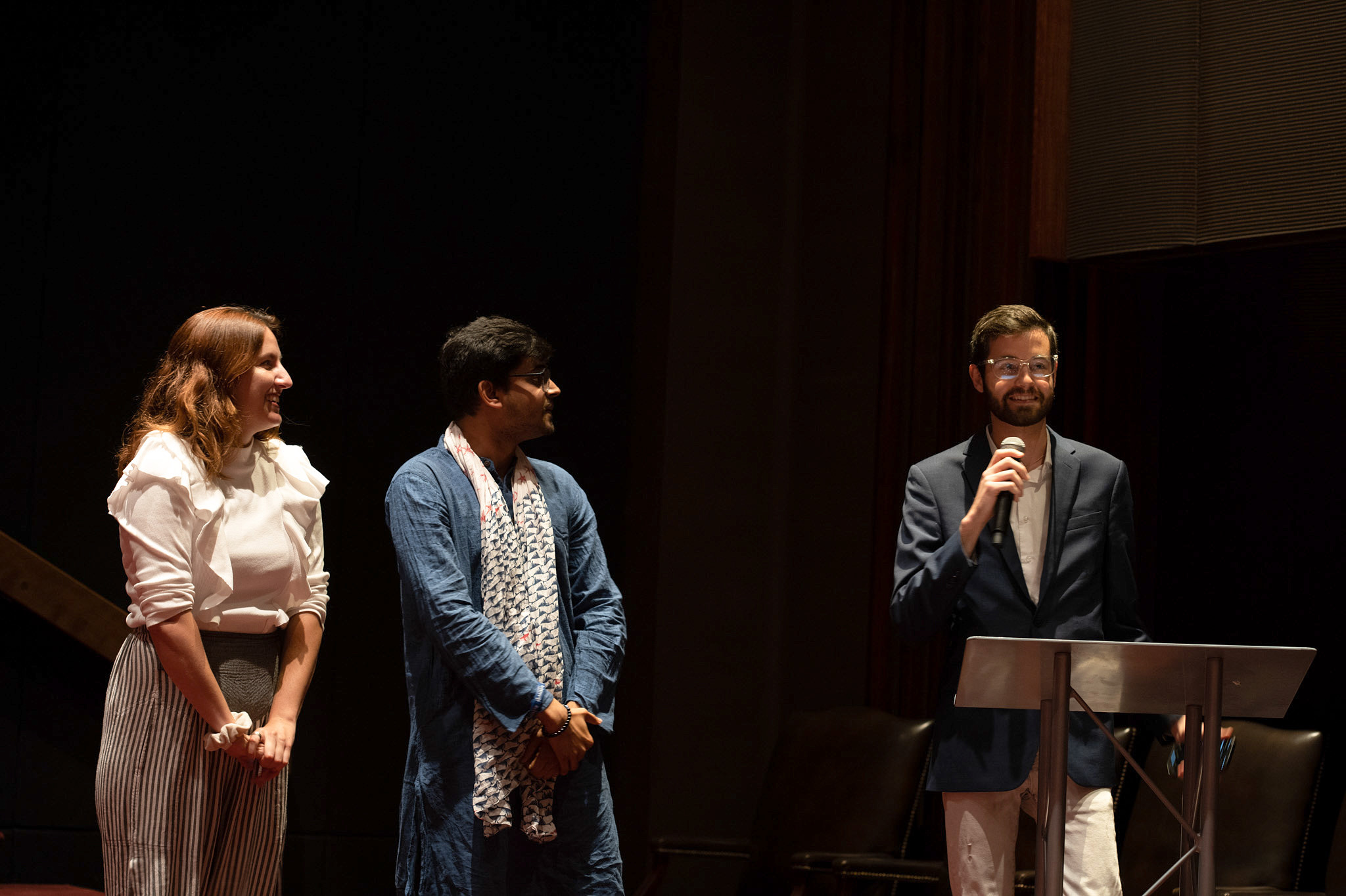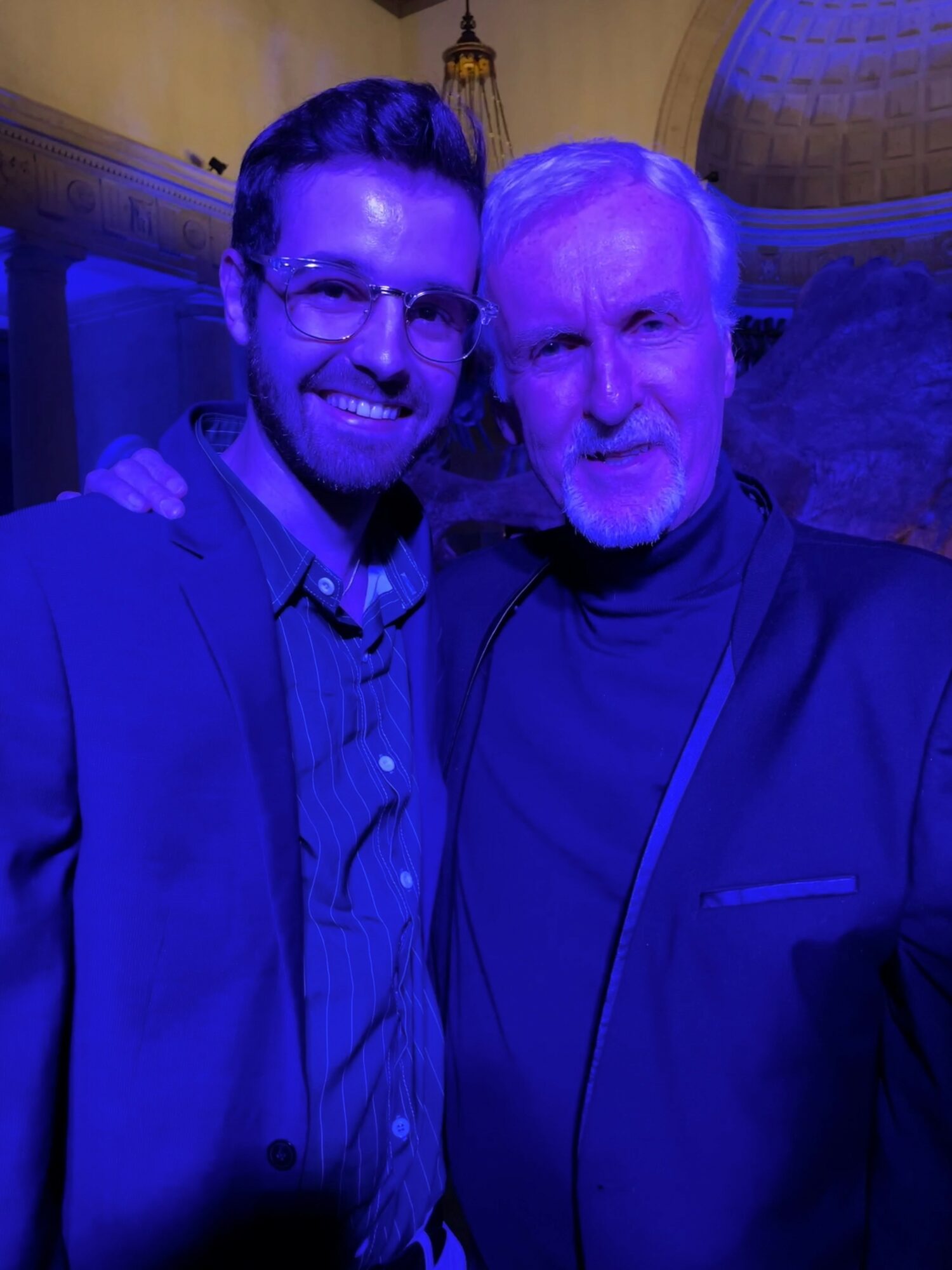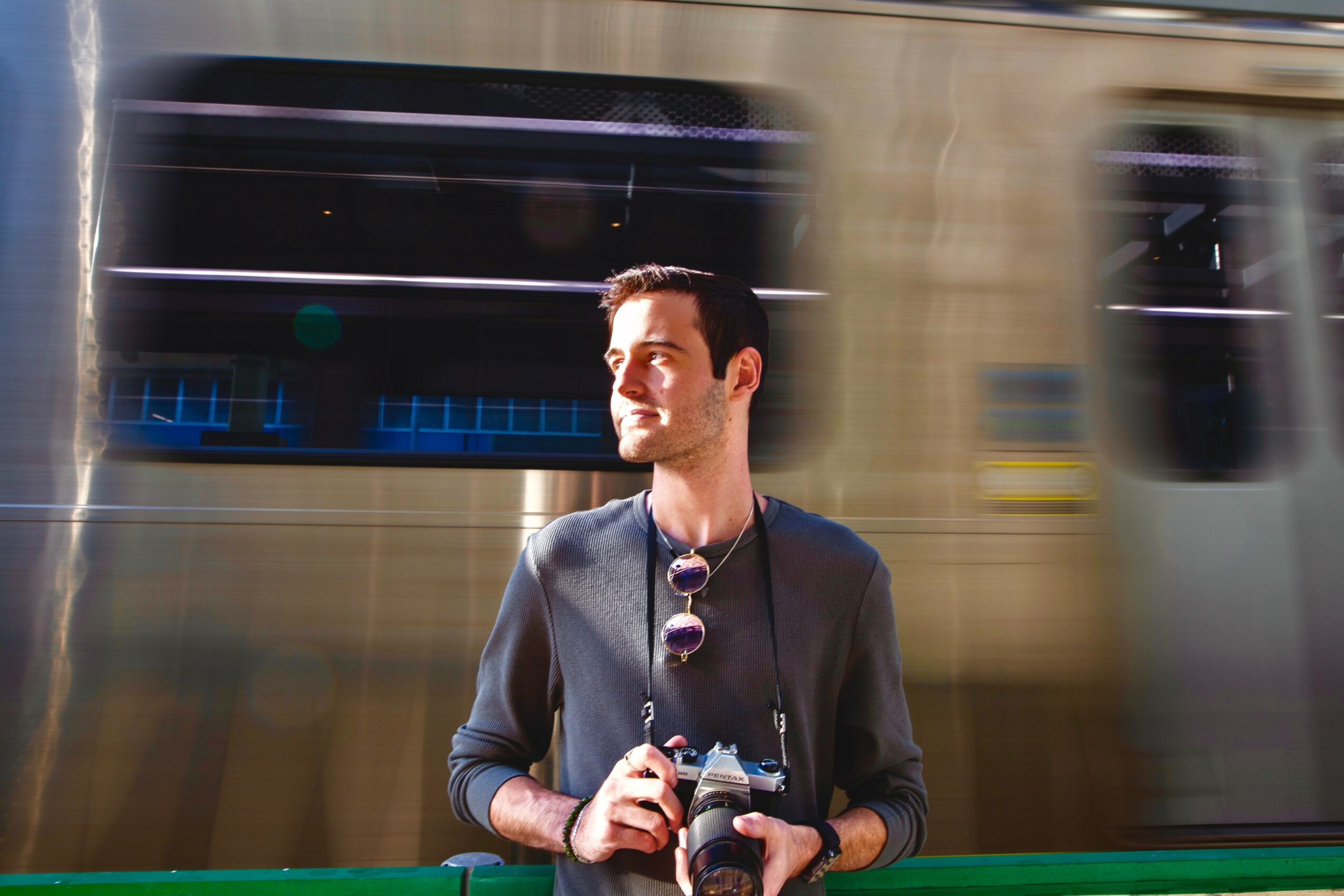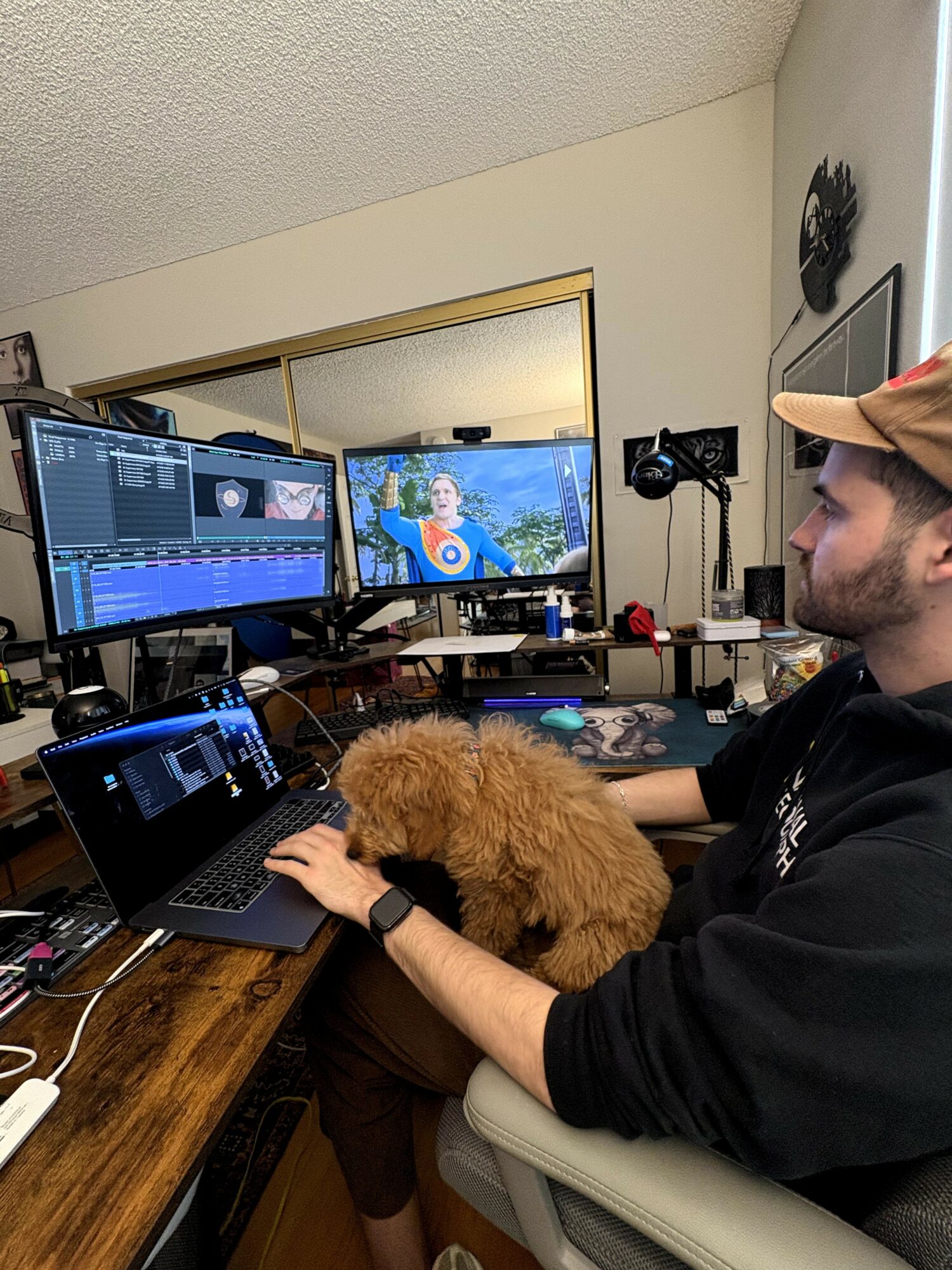

Today we’d like to introduce you to Matthew Berger.
Hi Matthew, so excited to have you on the platform. So before we get into questions about your work-life, maybe you can bring our readers up to speed on your story and how you got to where you are today?
I was born and raised in Johannesburg, South Africa, where I spent a lot of time outdoors, curious about the natural world. When I was just nine years old, I discovered the first fossil of a new species of ancient human ancestor — Australopithecus sediba — and later played a role in the discovery of Homo naledi, even taking the first scientific photos of the fossils inside the cave chamber. That early experience sparked a deep interest in science and storytelling.
At 18, I moved to the United States to study at the University of Alabama, where I majored in anthropology and geology and minored in criminal justice. But along the way, I discovered a passion for filmmaking — especially documentaries — and started to explore how visual storytelling could make science and real-world stories more accessible and impactful to the general public.
I applied to the USC School of Cinematic Arts with a short documentary I made about conservation in the Okavango Delta. I was fortunate to be accepted, and over the next three years, I immersed myself in editing and producing student films — over five thesis projects, including a multicam sitcom, a three-episode drama series, and USC’s first virtual production thesis shot on an LED wall. One of the films I edited became a finalist in the Student BAFTA Awards, which was a huge milestone.
During my time at USC, I also had the opportunity to work on Avatar 2. I served as a production assistant, operating reference cameras on facial performance recapture (FPR) and motion capture shoots, standing in for actors during FPR sessions, and assisting the Los Angeles production office for the Avatar sequels. Being part of such a massive, high-level production gave me hands-on experience with cutting-edge technology and the fast-paced nature of large-scale filmmaking.
After graduating, I was hired by Telepictures (a Warner Bros. company) as the Senior Visual Producer and Editor, Digital for ExtraTV, where I’ve worked on over 200 episodes and counting. Outside of my day job, I’m the associate producer on an independent documentary following polar explorer Børge Ousland and his mentee Vincent Colliard, and I’m also working on a mini docuseries about an up-and-coming DJ breaking into the music scene. Everything I’ve done — from fossil hunting to filmmaking — has been about discovering stories worth telling.
Alright, so let’s dig a little deeper into the story – has it been an easy path overall and if not, what were the challenges you’ve had to overcome?
It definitely hasn’t been a completely smooth road, but I think that’s part of what’s made the journey so meaningful. Moving from South Africa to the U.S. at 18 was a major shift — culturally, emotionally, and logistically. I was starting fresh in a new country, far from family and everything familiar, and figuring out not just how to navigate college, but also who I was becoming.
Initially, I wasn’t even on a filmmaking path. I was studying anthropology and geology, which I loved, but it wasn’t until I picked up a camera to tell a conservation story that I realized how powerful visual storytelling could be. Shifting gears toward film meant taking a big risk — leaving behind the track I was on, applying to one of the most competitive film schools in the world, and starting over in a completely different industry.
Film school itself was a whirlwind — exciting, inspiring, but also intense. I poured myself into editing, often juggling multiple projects at once, dealing with long nights, tight deadlines, and the constant pressure to perform at a high level. And like many people in creative fields, I’ve dealt with the usual doubts — wondering if I was good enough, if I’d chosen the right path, if I could “make it” in such a competitive industry.
After graduating, breaking into the professional world wasn’t instant either. I was lucky to land a job at ExtraTV, but even that came with a steep learning curve. It’s a fast-paced environment with high expectations and a lot of responsibility. That said, every step — even the hard ones — has helped me grow not just as a filmmaker, but as a person.
Can you tell our readers more about what you do and what you think sets you apart from others?
I’m a film and television editor by trade, with a background rooted in both documentary and narrative storytelling. Currently, as the Senior Visual Producer and Editor, Digital for ExtraTV, I’ve been a part of over 200 episodes covering entertainment news, celebrity interviews, and red carpet coverage. It’s a fast-paced job that’s taught me how to be sharp, efficient, and adaptable in an ever-changing media landscape — and I’ve often been told how quickly and smoothly I work, thanks to being extremely tech-savvy and able to pick up new software and workflows with ease.
Outside of the day job, I’m most passionate about longform storytelling — whether it’s a scripted piece across any genre, a documentary, or something hybrid in between. Independent projects allow me to push creatively and build toward the bigger goals I’m chasing.
What sets me apart is the path I’ve taken and the background I come from — a blend of science, structure, and storytelling that gives me a unique lens as an editor. I originally pursued anthropology and geology because I was fascinated by how we understand the world and our place in it. But over time, I realized that while scientific research is vital, it often doesn’t reach the wider public — most people don’t read scientific papers. A big part of why I got into filmmaking was to help bridge that gap. I saw documentary film as a powerful way to make complex scientific stories accessible, engaging, and emotionally resonant. That mission continues to guide me. I’m driven by authentic moments and the challenge of shaping emotional arcs from raw footage. Whether I’m cutting a high-profile interview or a quiet documentary scene in the Arctic, I care about making the story land — not just visually, but emotionally and thematically, in a way that feels honest and deeply human.
What I’m most proud of isn’t tied to a single credit or milestone, but the fact that I’ve built a career grounded in curiosity, craft, and heart — and that I’ve stayed open to where the journey takes me.
What would you say have been one of the most important lessons you’ve learned?
One of the most important lessons I’ve learned is that there’s no single, linear path to getting where you want to go — especially in a creative field like film. When I first moved from studying science to pursuing storytelling, I had no idea how it would all come together. But I’ve learned that every experience, even the seemingly unrelated ones, feeds into your voice as a filmmaker. Another big lesson has been the value of staying curious and adaptable. Whether it’s picking up new editing software on the fly or jumping into a project with very little prep, being open to learning and ready to problem-solve has made all the difference.
I’ve also realized how important strong communication is — not just in sharing creative ideas, but in understanding the needs of a director, producer, or team and making the post process smooth and collaborative. Being easy to work with and able to connect with people on both a personal and professional level has opened doors and made even the toughest projects more enjoyable. At the end of the day, filmmaking is a team effort, and being someone others trust and enjoy working with has been just as valuable as any technical skill.
Contact Info:
- Website: https://mattyberger.com/
- Instagram: https://www.instagram.com/mattyberger
- LinkedIn: https://www.linkedin.com/in/mattysberger/
- Twitter: https://x.com/Matty_Berger98
- Other: https://www.imdb.com/name/nm6436344/?ref_=nv_sr_srsg_0_tt_0_nm_8_in_0_q_matthew%2520berger




















